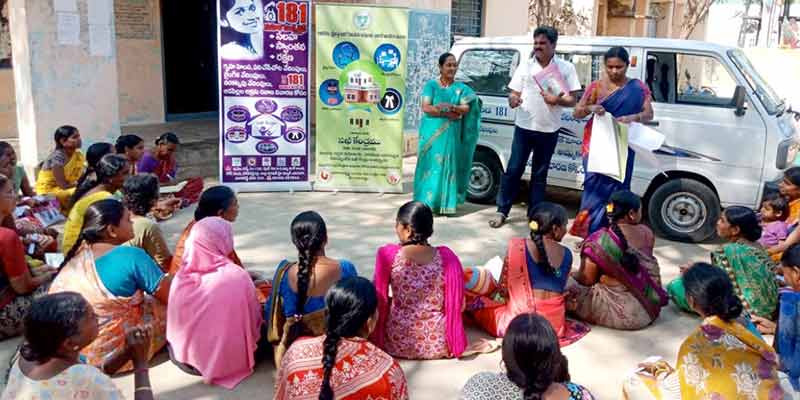- India
- Feb 08
Explainer / One Stop aka Sakhi Centres
As many as 680 One Stop Centres (OSCs), popularly known as Sakhi centres, have been set up across India, Minister of Women and Child Development Smriti Irani said in a written reply in the Lok Sabha on February 7.
What are One Stop Centres?
One Stop Centres (OSCs) are intended to support women affected by violence, in private and public spaces, within the family, community and at the workplace. Women facing physical, sexual, emotional, psychological and economic abuse, irrespective of age, class, caste, education status, marital status, race and culture will be facilitated with support and redressal.
The scheme was launched on April 1, 2015. An OSC has to be located within a 2 km radius of hospitals or medical facilities in every district. It is implemented through the Nirbhaya Fund. The central government provides 100 per cent financial assistance.
At the national level, the WCD ministry is responsible for budgetary regulation and administration of the scheme. At the state level, the Department of Women and Child Development is responsible for overall direction and implementation of the scheme.
What are the objectives?
* To provide integrated support and assistance to women affected by violence, both in private and public spaces under one roof.
* To facilitate immediate, emergency and non-emergency access to a range of services including medical, legal, psychological and counselling support under one roof to fight against any forms of violence against women.
The OSCs will support all women including girls below 18 years of age affected by
violence, irrespective of caste, class, religion, region, sexual orientation or marital status.
Aggrieved women facing any kind of violence due to attempted sexual harassment, sexual assault, domestic violence, trafficking, honour-related crimes, acid attacks or witch-hunting who have reached out or been referred to the OSC will be provided with specialised services.
What are the services provided?
Emergency Response and Rescue: OSCs will provide rescue and referral services to women affected by violence. For this, linkages will be developed with existing mechanisms such as National Health Mission (NHM), 108 service, police (PCR Van) so that they can either be rescued from the location and referred to the nearest medical facility or shelter home.
Medical assistance: Women affected by violence would be referred to the nearest hospital for medical aid / examination, which would be undertaken as per the guidelines and protocols developed by the Ministry of Health and Family Welfare.
Register cases: Assistance to women in lodging First Information Report (FIR) / Non-Cognizable Report (NCR) / Domestic Incident Report (DIR).
Psycho-social support / counselling: A skilled counsellor providing psycho-social counselling services would be available on call. This counselling process will give women confidence and support to address violence or to seek justice for the violence perpetuated. Counsellors shall follow a prescribed code of ethics, guidelines and protocols in providing counselling services.
Legal aid and counselling: To facilitate access to justice for women affected by violence, legal aid and counselling would be provided at OSCs through empanelled lawyers or National / State / District Legal Service Authority. The aggrieved woman would be provided with an advocate of her choice in case she wants to engage the same to assist the state prosecutors in trying her case. It would be the responsibility of the lawyer / prosecutor to simplify legal procedures for the woman and advocate for her exemption from court hearings. In case the trial or inquiry relates to an offence of rape as defined under Sections 376, 376A-D IPC, it would be the duty of the prosecutors trying the case to complete the inquiry or trial as far as possible within a period of two months from the date of filing of chargesheet.
Shelter: The OSCs will provide temporary shelter facilities to the aggrieved women. For long-term shelter requirements, arrangements will be made with Swadhar Greh / Short Stay Homes (managed / affiliated with government / NGO). Women affected by violence along with their children (girls of all ages and boys up till 8 years of age) can avail temporary shelter at the OSC for a maximum period of five days.
Video-conferencing facility: To facilitate speedy and hassle-free police and court proceedings, the OSC will provide video conferencing facility. Through this facility if the aggrieved woman wants, she can record her statement for police / courts from the OSC itself using audio-video electronic means.
A woman affected by violence can access the OSC…
* By herself.
* Through any person including any public spirited citizen, public servant (as defined under Section 21 of the Indian Penal Code, 1860), relative, friend, NGO, volunteer, etc.
* Through the women’s helpline integrated with the police, ambulance and other emergency response helplines.
Manorama Yearbook app is now available on Google Play Store and iOS App Store

